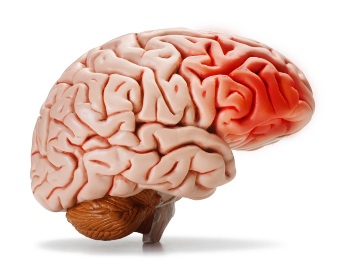Anoxic and Hypoxic Brain Injury
What Are Anoxic and Hypoxic Brain Injuries?
Your brain needs a constant supply of oxygen to work properly and survive. But if something interrupts or cuts off the oxygen flow to your brain for 4 minutes or longer, brain cells begin to die. This can cause serious, and in some cases, permanent brain damage.
If your brain gets reduced oxygen flow for a few minutes, you might have hypoxic brain injury or cerebral hypoxia. But if the supply is completely cut off and no oxygen reaches the brain, it’s called anoxic brain injury or cerebral anoxia. Sometimes the two terms are used interchangeably or together as hypoxic-anoxic brain injury.
Here’s a closer look at what happens if you have this type of brain injury, the chances of recovery, and what it might mean for your loved one.
What Is an Anoxic Brain Injury?
Anoxic brain injuries are caused by a complete lack of oxygen to the brain, which results in the death of brain cells after approximately four minutes of oxygen deprivation.
What Is a Hypoxic Brain Injury?
Hypoxic brain injuries are brain injuries that form due to a restriction on the oxygen being supplied to the brain. The restricted flow of oxygen causes the gradual death and impairment of brain cells.
Causes of Anoxic and Hypoxic Brain Injuries
- Hypoxicischemic injury, also known as stagnant anoxia, may:
- occur when oxygen-carrying blood cannot reach the brain, resulting in oxygen deprivation.
- be caused by strokes, but can also be caused by other pulmonary conditions, such as cardiac arrest or cardiac arrhythmia.
- Anemic anoxia: Anemic anoxia occurs when the blood cannot properly carry enough oxygen or if there is not enough blood in the body itself to support the oxygen needs of the brain (i.e., lack of oxygen to the brain).
- Toxic anoxia: Toxic anoxia occurs when chemicals or poisons hinder the ability of the brain to receive oxygen from blood cells.
- Anoxic anoxia: Anoxic anoxia is caused by the lack of oxygen in the air, resulting in suffocation.
Many things can cause your brain to not get enough oxygen, such as:
- Cardiac arrest
- Irregular heart rhythm (arrhythmia)
- Heart attack
- Low blood pressure from blood loss or poor heart function
- Strangulation
- Choking
- Suffocation
- Serious asthma attack
- Complication from general anesthesia during surgery or other medical procedures
- Near drowning
- Exposure to high altitudes
- Breathing in smoke Inhaling carbon monoxide
- Poisoning
- Drug overdose
- Electric shock
- Seizure
- Stroke
- Head injury including traumatic brain injury from blunt force, which can be caused by falls, car accidents, gunshot wounds, sports injuries, or injuries at work
Lack of Oxygen to the Brain Symptoms
Anoxic and hypoxic brain injuries often cause an initial loss of consciousness, which can be short-term or long-term depending on severity and length of oxygen deprivation. Initial loss of consciousness may result in a comatose state. Other symptoms of an anoxic or hypoxic brain injury occurring may include slurring and difficulties with speech, confusion and disorientation or facial drooping.
Upon regaining consciousness, the effects and symptoms are often similar to that of a traumatic brain injury, depending on severity of the injury. More severe anoxic or hypoxic brain damage may leave the patient in a vegetative state. The effects of an anoxic brain injury may include:
- headache
- difficulty coordinating balance
- vision problems
- seizures changes in sensory perception
- trouble speaking and swallowing
- changes in sleep pattern
- lack of bowel and bladder control
- changes in sexual function
- motor impairment
- personality changes
- difficulty forming sentences
- confusion
- trouble communicating
- difficulty with reason, focus and logic
- memory impairments
- depression
- poor concentration
- mood swings
- limited attention span
- disorientation
- forgetfulness
- acting inappropriately
Prognosis of Anoxic or Hypoxic Brain Injuries
Projecting the recovery and care for anoxic or hypoxic brain injuries is difficult because each case is unique. A full recovery from severe anoxic or hypoxic brain injury is rare, but many patients with mild anoxic or hypoxic brain injuries are capable of making a full or partial recovery. Furthermore, symptoms and effects of the injury are dependent on the area(s) of the brain that was affected by the lack of oxygen.
Anoxia and Hypoxia Treatment
The overall life expectancy for patients with anoxic or hypoxic brain injuries can vary based on the severity of the brain damage from lack of oxygen and is something that should be discussed with a patient’s physician. Reach out to Shepherd Center today to discuss treatment options for anoxia or hypoxia and learn about our specialists now.
